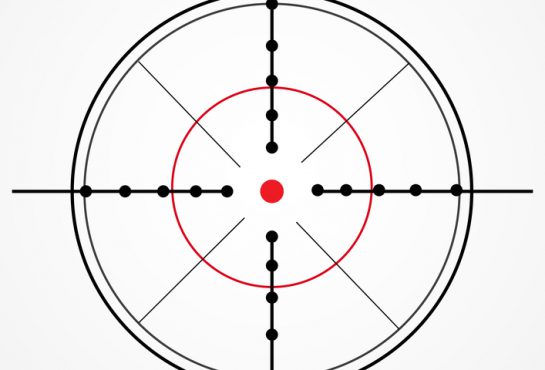What financial planners can learn from snipers

Crosshairs are only good up close. The longer the shot, the more likely the wind will move your shot off target. And so, snipers learn to aim away from the target to adjust for the journey to the target. Financial planning is very similar – aiming for a far away target with many uncertainties along the path.
Kentucky Windage is the art and science of applying vertical and horizontal adjustments to munitions in motion. The long distance hunter and the military sniper both have a common challenge. They’ve learned to no longer trust what they see, replacing this trust with what they know. Just like a quarterback throws where the receiver is going to be, not where he is right now. Accurate shooting isn’t based on what you see, but rather, your awareness of the inaccuracy in what you see. The challenge is that even one small incorrect assumption can send your bullet way off course and you don’t know it until it is too late. There are three ways to reduce the risk of missing your personal financial target.
First, unpredictability is the baseline characteristic of life. Most of us can accurately plan for tomorrow, next week or even next month. However, when planning for next year or ten years down the road, you’re in the same position as the hunter and sniper except you are shooting into the fog. Aim longer than a year and you are guessing, be skeptical when financial planners present you with a 30 year out prediction.
Second, our ability to survive financial trauma is directly related to our ability to adapt, and we adapt better when we have time to think. If we are not calm in the face of crisis, it impacts our decision making. How you react and make decisions in uncomfortable situations will determine your ability to survive them.
Third, assume all things will be worse than you can imagine. Why? Because I have never had one person in my office say to me, “Rusty, you know I just have too much money and it is causing a real problem.” The assumption of success is fun. Unfortunately, it is not helpful because success never hurt anyone. Once you remove the distraction and focus on what can go wrong, it greatly improves the visibility of the situation and improves the chances of hitting your target.
There is no scientific formula for a successful life. As long as you approach each day with the comfort that it will be unpredictable, maintain your ability to adapt, and focus on what might go wrong, you increase the chances of hitting your target despite the winds of change we experience in life.
